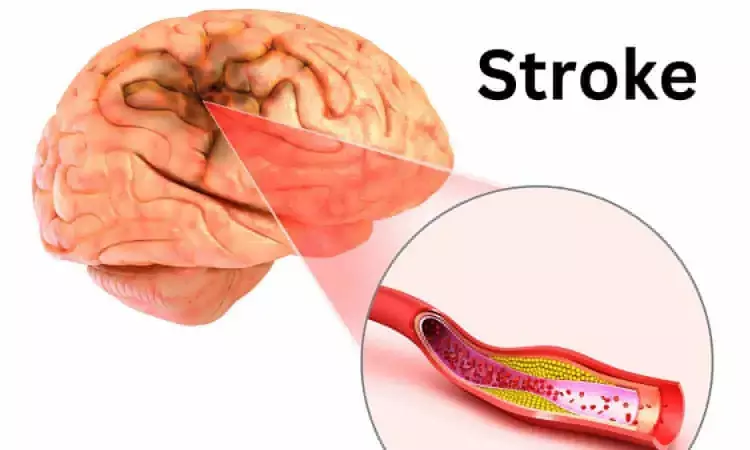- Home
- Medical news & Guidelines
- Anesthesiology
- Cardiology and CTVS
- Critical Care
- Dentistry
- Dermatology
- Diabetes and Endocrinology
- ENT
- Gastroenterology
- Medicine
- Nephrology
- Neurology
- Obstretics-Gynaecology
- Oncology
- Ophthalmology
- Orthopaedics
- Pediatrics-Neonatology
- Psychiatry
- Pulmonology
- Radiology
- Surgery
- Urology
- Laboratory Medicine
- Diet
- Nursing
- Paramedical
- Physiotherapy
- Health news
- Fact Check
- Bone Health Fact Check
- Brain Health Fact Check
- Cancer Related Fact Check
- Child Care Fact Check
- Dental and oral health fact check
- Diabetes and metabolic health fact check
- Diet and Nutrition Fact Check
- Eye and ENT Care Fact Check
- Fitness fact check
- Gut health fact check
- Heart health fact check
- Kidney health fact check
- Medical education fact check
- Men's health fact check
- Respiratory fact check
- Skin and hair care fact check
- Vaccine and Immunization fact check
- Women's health fact check
- AYUSH
- State News
- Andaman and Nicobar Islands
- Andhra Pradesh
- Arunachal Pradesh
- Assam
- Bihar
- Chandigarh
- Chattisgarh
- Dadra and Nagar Haveli
- Daman and Diu
- Delhi
- Goa
- Gujarat
- Haryana
- Himachal Pradesh
- Jammu & Kashmir
- Jharkhand
- Karnataka
- Kerala
- Ladakh
- Lakshadweep
- Madhya Pradesh
- Maharashtra
- Manipur
- Meghalaya
- Mizoram
- Nagaland
- Odisha
- Puducherry
- Punjab
- Rajasthan
- Sikkim
- Tamil Nadu
- Telangana
- Tripura
- Uttar Pradesh
- Uttrakhand
- West Bengal
- Medical Education
- Industry
Potential of Polypill Intervention in Stroke and Cognitive Impairment Prevention,reveals PROMOTE Study

The PROMOTE study, sponsored by the Program of Support for Institutional Development for the Unified Health System (PROADI-SUS) of the Hospital Moinhos de Vento in partnership with the Ministry of Health of Brazil, was conducted by a collaborative team of researchers from different Institutions, led by Professor Sheila Cristina Ouriques Martins.
The study was designed to prove the World Stroke Organisation’s concept of a comprehensive intervention approach in primary prevention to “Cut Stroke in Half”, conceived by former World Stroke Organisation President Michael Brainin from Austria, and Professor Valery Feigin from New Zealand. The intervention is based on lifestyle modification utilising the Stroke Riskometer and a polypill containing anti-hypertensive and statin for patients at low to moderate risk of stroke, a population that currently has no recommendation for medication use. The main study will explore the efficacy of intervention in reducing the incidence of stroke and cognitive impairment in this population. The polypill regimen comprised valsartan 80mg, amlodipine 5mg, and rosuvastatin 10mg.
PROMOTE is a Phase III, randomised, double-blinded, placebo-controlled clinical trial recruiting participants aged 50-75 years without a history of hypertension, diabetes, stroke, or cardiovascular disease, yet presenting systolic blood pressure (SBP) levels between 120- 139mmHg and at least one lifestyle risk factor (including an unhealthy diet, sedentarism, obesity or smoking). This pilot study aimed to assess the feasibility of this strategy implementation, the tolerability of this new polypill, and the potential impact of this integrated intervention, including as the main outcome a target reduction in 2.5mmHg in SBP and improvement in 0.4 points in the Life’s Simple 7 score over a 9-month period. Participants underwent a 28-day run-in phase to evaluate adherence and tolerance to the polypill regimen. Primary Health Care Units in southern Brazil were randomised into clusters to implement Stroke Riskometer-guided lifestyle modification or provide standard care, while individual participants were allocated to the polypill or placebo.
The pilot study enrolled 371 patients, with a mean age of 59 years, 64% were women and 87% white. The mean estimated 10-year cardiovascular risk was 4-5%. The polypill regimen was very well-tolerated, with only 4% of participants excluded after the run-in period because of mild adverse events. In total, serious adverse events occurred only in 1.4% of patients and were not related to the polypill.
Participants receiving the polypill experienced a significant 13 mmHg reduction in SBP throughout the study duration compared to 4 mmHg in the placebo group. Notably, participants in the Polypill+Riskometer group exhibited the most pronounced reduction in SBP. Participants taking the polypill also showed a reduction of 38 mg/dl in LDL cholesterol, with no difference observed in the placebo group. The riskometer did not add benefit in reducing cholesterol but, encouragingly, 71% of participants utilising the Stroke Riskometer reported its efficacy in facilitating lifestyle modifications.
The PROMOTE pilot study demonstrated that the new polypill can already be used for hypertensive population and it is effective and well tolerated in patients with lower blood pressure but still with an increased risk for stroke. The riskometer is a free app, easy to use, and can assist in lifestyle modification. The findings from the PROMOTE pilot may represent a paradigm shift in preventive healthcare based on combined therapies targeting vascular risk factors to reduce the incidence of stroke and cognitive impairment.
The results of the expansion for a large clinical trial with 8,250 participants is now starting across the entire country. This may demonstrate the impact in stroke and cognitive decline in this new target population with low and middle risk of stroke, with the expectation of cutting stroke rates.
Dr Kamal Kant Kohli-MBBS, DTCD- a chest specialist with more than 30 years of practice and a flair for writing clinical articles, Dr Kamal Kant Kohli joined Medical Dialogues as a Chief Editor of Medical News. Besides writing articles, as an editor, he proofreads and verifies all the medical content published on Medical Dialogues including those coming from journals, studies,medical conferences,guidelines etc. Email: drkohli@medicaldialogues.in. Contact no. 011-43720751


